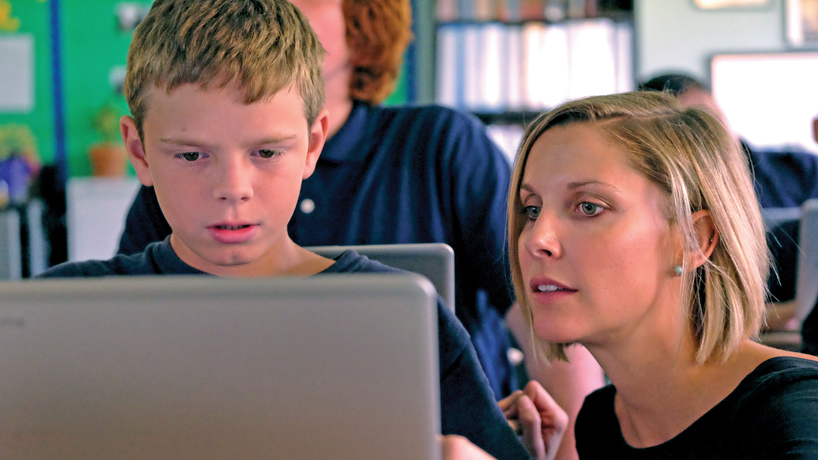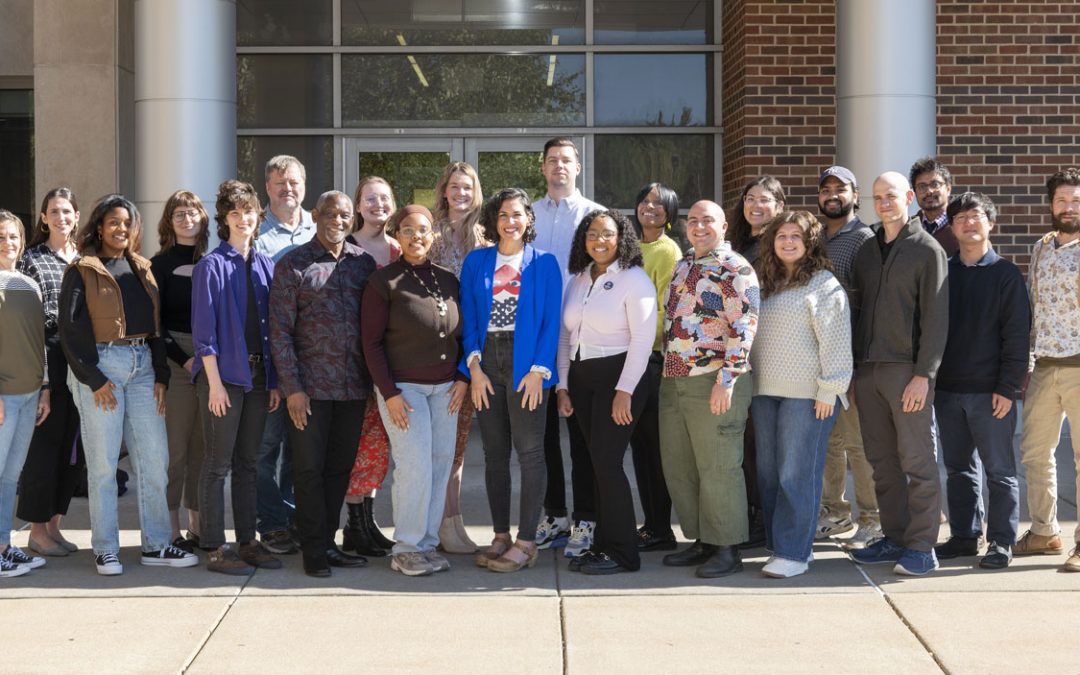
Five St. Louis charter schools – The Arch Community School, The Biome, Lift for Life Academy, North Side Community School and St. Louis Language Immersion School – received 275 laptops thanks to corporate donations from EPC and Spire. (Photo by August Jennewein)
By mid-March, public schools in St. Louis, St. Louis County and Archdiocese schools announced they would cease in-person classes through April 3. On April 9, Missouri Gov. Mike Parson extended closures statewide through the academic year.
Transitioning to online learning poses difficulties in the St. Louis region, where internet accessibility and economic inequality remain barriers to learning at home.
To alleviate this burden, the University of Missouri–St. Louis Charter School Office worked with the Regional Business Council to facilitate the donation of about 275 laptops to five local charter schools, which are operated as local education agencies: The Arch Community School, The Biome, Lift for Life Academy, North Side Community School and St. Louis Language Immersion School. Southeast Missouri State University sponsors Lift for Life, while UMSL sponsors the other four.
Overall, UMSL sponsors seven schools throughout the city, including elementary schools, K-8 schools and one middle school. Bill Mendelsohn, director of Charter Schools and Partnerships at UMSL, said it was clear the schools would face challenges.
“All of them have been greatly impacted by the school closures as a result of the virus,” Mendelsohn said. “The two biggest needs in terms of being able to deliver the new, remote-learning approach to instruction involves providing laptops and broadband internet access for those families that don’t have access to them.”
The week closures were announced, Mendelsohn started reaching out to UMSL’s charter schools to see what their needs were. He then contacted Kathy Osborn – UMSL alumna, former vice chancellor and president and CEO of the Regional Business Council – about the possibility of securing corporate donations to help fulfill the schools’ technological needs. In the past, the Charter School Office has worked with RBC initiatives to provide resources to schools.
“If anyone deserves credit for this, it’s Kathy,” Mendelsohn said.
Osborn quickly tapped her connections in the business community, calling Steve Hamilton, CEO of CSI Leasing. Hamilton is a member of the RBC, and his company is one of the largest independent technology leasing specialists in the world.
“They have a subsidiary that resells computers and they immediately stepped up to donate to the cause,” Osborn said. “They wanted to make sure the computers and the software were exactly what the schools needed.”
The subsidiary of CSI Leasing, EPC, provided a large portion of the computers, but more were needed. Osborn said Spire came forward and provided the rest. In total, the two companies donated about 275 laptops.
“We’re pleased that, in every instance, schools were able to work through complicated connectivity issues as well,” Osborn said. “Businesses are under quite a bit of stress right now as well, but they recognized there was a need for our children in the city to get access to the technology in order to continue to learn.”
The companies also made sure the laptops were up-to-date and functional for students.
“They didn’t just donate old computers,” Osborn said. “They gave computers that they helped load with software. They worked with each of the schools and went out of their way in a very stressful time.”
Mendelsohn clarified that his office didn’t donate or distribute any of the computers, and no UMSL funds were used. He viewed his role as a facilitator who was able to connect the charter schools with the right people.
“The schools that were recipients are deeply appreciative of the donations,” he said. “It’s going to make a huge difference in the ability of the schools to provide remote learning to children. It’s wonderful what the donors did, and they came through very quickly. We’re thankful for that and also very thankful for the RBC for helping to connect our office with these business leaders.”
Under the circumstances, Mendelsohn and Osborn feel the schools have responded resiliently.
“It’s amazing how they’ve responded,” Mendelsohn said. “The leaders and their teaching staffs, as soon as they learned that the schools were going to close, gave up their spring breaks to prepare. Changing from face-to-face in a building to virtual learning takes a tremendous amount of time, knowledge and skills. I was really impressed with the quality of the remote learning plans that our schools put together.”














